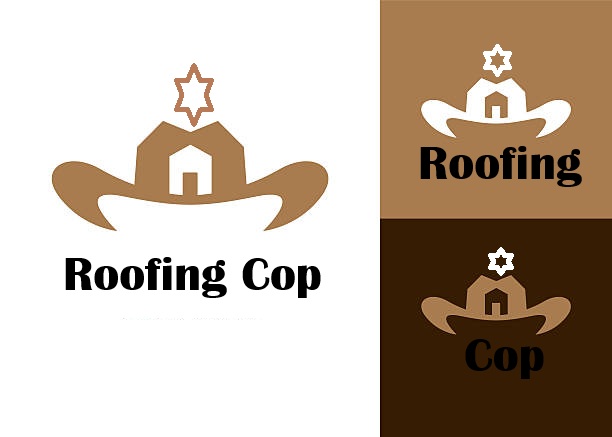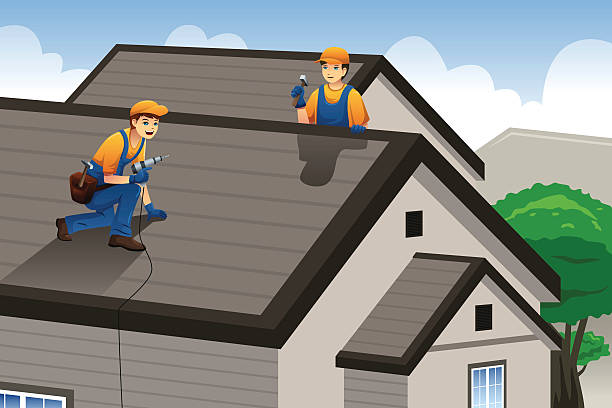Introduction
Your roof is the first shield protecting your home from rain, wind, sun, and snow. Yet many homeowners overlook roof maintenance until it is too late. This is where the concept of the roofing cop comes in. Acting like a watchful guardian, a roofing cop keeps roofs in excellent shape through proactive inspections, timely maintenance, and smart repair strategies.
In this guide, you’ll learn what it means to think like a roofing-cop, how to spot early signs of trouble, the best practices for extending roof life, and why this approach saves money while enhancing home safety. By adopting the roofing-cop mindset, you empower yourself to protect your most valuable asset—your home.
What Does a Roofing Cop Mean?

The idea of a roofing cop is about adopting the habits of vigilance, consistency, and responsibility when it comes to your roof. Instead of waiting for water stains on ceilings or collapsed shingles, a roofing cop pays attention to small details that signal potential issues.
This mindset is not about being paranoid—it is about being prepared. A roofing-cop inspects flashing around chimneys, looks for loose shingles, and clears gutters before storms hit. Think of it as being the detective and protector of your roof.
By taking on this role, homeowners can avoid costly repairs, maximize the lifespan of roofing materials, and keep their homes safe from unexpected leaks or damage.
Common Roofing Problems That a Roofing Cop Prevents
Roofs are exposed to constant stress, and without proper attention, issues escalate quickly. Acting like a roofing cop helps identify and stop these problems before they become disasters.
Leaks and Water Damage
The most common issue roofs face is water intrusion. Small cracks in flashing, gaps around skylights, or missing shingles can let water seep in. A roofing cop checks attics for damp spots, looks for discoloration on ceilings, and monitors shingle integrity.
Shingle Deterioration
Over time, shingles curl, crack, or lose protective granules. A roofing-cop can recognize early warning signs like brittle texture, uneven edges, or patches of exposed underlayment.
Flashing Failures
Flashing around vents, chimneys, and skylights is essential for keeping water out. A roofing-cop inspects these areas closely, as loose or rusted flashing is often the start of leaks.
Gutter and Drainage Issues
Clogged gutters lead to water backup, ice dams, and even foundation damage. By cleaning them regularly, a roofing cop ensures proper drainage away from the home.
Preventive Maintenance with a Roofing Cop Mindset
The best way to extend roof life is by preventing damage in the first place. Here’s how a roofing-cop practices preventive care.
Routine Inspections
A roofing cop examines the roof at least twice a year—once in spring and once in fall. After major storms, inspections are repeated to check for wind or hail damage.
Debris and Moss Removal
Leaves, branches, and moss hold moisture against roofing materials, accelerating wear. A roofing-cop gently removes these, avoiding methods like high-pressure washing that can strip protective granules.
Applying Sealants and Coatings
Protective coatings act like sunscreen for shingles. A roofing-cop applies sealants that resist UV rays, repel moisture, and reduce the risk of premature wear.
Repairing Like a Roofing Cop

Even with the best prevention, repairs are sometimes necessary. A roofing cop knows when to take action and when to call professionals.
DIY Repairs
For minor issues like replacing a few damaged shingles or sealing small cracks, a roofing -cop can manage repairs using safe practices and the right tools.
Professional Assistance
When large sections of the roof are compromised, or when structural damage occurs, a roofing-cop recognizes the need for licensed roofers. Professional intervention ensures warranty compliance and long-lasting fixes.
Keeping Records
A good roofing-cop documents all repairs, inspection dates, and contractor details. These records support insurance claims and add value when selling a home.
Weather Preparedness with the Roofing Cop Approach
Weather is one of the greatest threats to roofs. A roofing cop prepares before, during, and after severe conditions.
Before Storms
Securing loose shingles, trimming tree branches, and cleaning gutters helps minimize storm damage.
After Storms
A roofing cop immediately checks for lifted shingles, granule loss, and leaks. Quick responses prevent small problems from growing into costly repairs.
Benefits of Being a Roofing Cop
Adopting the roofing cop mindset has long-term rewards:
- Extended roof lifespan through consistent care
- Energy efficiency thanks to proper insulation and ventilation
- Increased home value and curb appeal
- Reduced repair costs by catching issues early
- Greater peace of mind knowing your roof is always protected
350-Word Conclusion
Embracing the roofing cop approach transforms how you manage your home. Instead of waiting for damage to appear, you stay a step ahead by watching closely for small changes that signal potential problems. This proactive approach protects your roof, enhances your home’s safety, and saves significant money over time.
A roofing cop understands that the roof is not just shingles and nails; it is a system that includes flashing, insulation, ventilation, and drainage. By maintaining each part, you ensure the system works together to defend against weather, water, and wear.
With seasonal inspections, debris removal, and protective treatments, a roofing-cop ensures a roof performs at its peak year after year. This care extends its lifespan, reduces the risk of emergencies, and boosts the home’s energy efficiency.
When repairs are necessary, a roofing cop knows when to handle simple tasks and when to call in professionals. This balance of responsibility keeps projects safe, effective, and warranty-compliant. Documentation and record-keeping add another layer of protection, making future claims or property sales easier and more transparent.
Weather preparedness is another vital area where a roofing-cop shines. By securing the roof before storms and checking for damage after, you reduce the chances of water intrusion or costly repairs. Over time, this vigilance becomes second nature.
Ultimately, being a roofing-cop is about ownership and pride. You take charge of your home’s first line of defense, ensuring it continues to shield your family, belongings, and investment. Adopting this mindset is not just about saving money or preventing leaks—it’s about building confidence that your home is always secure.
So step into the role of a roofing-cop today. Your roof, your home, and your peace of mind deserve nothing less.
FAQs
What is a roofing cop?
A roofing cop is a proactive homeowner who consistently inspects, maintains, and repairs the roof to extend its lifespan.
How often should I inspect my roof like a roofing-cop?
At least twice a year, and after severe storms, a roofing-cop ensures the roof remains damage-free.
Can I repair my roof myself like a roofing-cop?
Yes, small fixes are manageable, but large or structural issues should always involve professionals.
Does the roofing-cop approach save money?
Absolutely. Preventive care reduces costly repairs, improves efficiency, and extends the roof’s life.
Why is record-keeping important for a roofing-cop?
Documenting inspections and repairs helps with insurance claims, warranty validation, and resale value.


